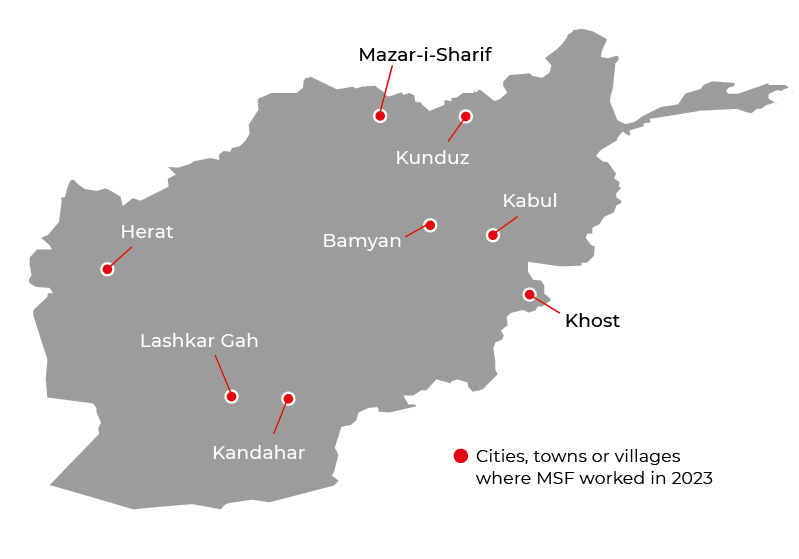MSF in action: Country profiles
KEY 2023 MEDICAL FIGURES
436,100
emergency room admissions
45,100
births assisted, including 2,640 caesarean sections
16,500
surgical interventions
In 2023, Doctors Without Borders/Médecins Sans Frontières (MSF) continued to support Afghanistan’s struggling health system by providing specialized healthcare across the country. We ran nine projects in eight provinces, maintaining a strong focus on emergency care, surgery and mother and child healthcare, with bed occupancy rates reaching 130 to 200 per cent in most of our facilities.
In Kabul, teams continued to treat patients with measles at Maiwand teaching hospital and expanded the feeding centre’s bed capacity from 34 to 47, the maximum possible. We also provided funding and technical support to the Afghan Midwives Association’s pilot project.
Our community healthcare program in Bamyan province delivered healthcare in remote and underserved districts, expanding from a mother and child focus to include general outpatient services and routine childhood vaccinations.
We supported regional hospitals in Lashkargah, Helmand province; treated thousands of critically ill children in the emergency room and admitted hundreds of newborns to neonatal intensive care in Mazar-i-Sharif, Balkh province; and set up 10 tents outside Herat hospital to treat wounded patients and donated emergency kits after three earthquakes of 6.3 magnitude devastated areas of Herat province in October.
At the same time, our teams continued to run a comprehensive tuberculosis program and pediatric nutrition program in Kandahar. We donated supplies to the provincial hospital, ran an 83-bed maternity hospital and supported eight maternity-focused health centres in Khost province. MSF staff ran a trauma centre in Kunduz, where an antibiotic stewardship program was introduced to help reduce antimicrobial resistance against first-line treatments in the community.
